“Join our esteemed tutors—Felicia Heard, Luke Adams, Payman Jaberi, and Robyn Levine—as they discuss the ethics, personal perspectives, and potential impacts of AI on the future of work.”
Welcome to the AI Future
Explore how the Artificial Intelligence is re-shaping the human careers and the ethics behind that.
Current Uses of AI in Education
AI tools such as Century Tech and Carnegie Learning provide personalized feedback, aiding learning without increasing teacher workload (Yang & Kyun, 2022). They also automate tasks like grading and lesson planning (Shaik et al., 2022), though digital inequality remains a concern (Manoharan & Nagar, 2021). Importantly, AI cannot replicate the emotional and relational aspects of teaching (Fanni et al., 2023).
Changing Teaching Roles
The OECD (2021) states that only a small portion of teachers’ duties can be automated. Mah et al. (2022) suggest teaching roles will evolve—not disappear—requiring skills in AI, data interpretation, and ethics (Kuleto et al., 2021). Regions where women dominate the profession may face greater challenges if training access is limited.
Training and Ethics
Countries like Singapore and Finland are actively training teachers in AI use, while others fall behind. Ethical concerns like data privacy, surveillance, and bias are growing (Muli, 2024). Teachers must stay central to the learning process and use AI as a tool—not a replacement.
AI in Healthcare
AI integration is transforming healthcare by improving service quality, efficiency, and accessibility. Enhanced patient engagement is evident through AI chatbots providing 24/7 assistance for scheduling and support. They handle multiple inquiries simultaneously, which is especially useful for patients with chronic conditions. Personalized treatment plans are developed through machine learning models that analyze medical history, symptoms, and genetic data. These models predict risks, such as diabetes and heart disease, enabling tailored treatment plans that enhance effectiveness and reduce complications. Virtual assistants like NHS tools guide patients to appropriate care, remind them to take medications, and monitor symptoms, leading to better health outcomes and lower healthcare costs (Zeb et al., 2024; Akbar & Muash, 2025).
AI-Assisted Surgery
AI-assisted surgery combines robotics and AI to enhance surgical precision and patient outcomes. It is widely used in cardiac, neurosurgical, and orthopedic procedures. Examples include coronary artery bypass and heart valve replacement with precise control, neurosurgery that aids in accurate tumor removal while minim
Ethical Consequences of AI in the Job Market
AI is transforming the job market, raising significant ethical challenges related to fairness, accountability, and transparency. Fairness in AI is not simply about treating everyone identically but addressing deeper values such as justice, autonomy, and avoiding harm (Binns, 2018; Floridi et al., 2018). Ethical principles, including transparency, require that AI systems clearly explain their decisions, particularly in contexts like hiring and education, to prevent discrimination and build trust (European Commission High-Level Expert Group on AI, 2019).
However, research shows that ethical guidelines often assume organizations will act ethically, which is rarely the case. Eubanks (2018) and Noble (2018) document how AI systems can reinforce existing inequalities, marginalize low-wage workers, and reflect the biases of their designers rather than neutral decision-making. Such outcomes highlight the importance of applying ethical frameworks rigorously and critically, not just theoretically.
These studies demonstrate that the ethics of AI is not merely a technical consideration but a vital human issue. Addressing these concerns is essential to ensure that AI contributes to fairness, accountability, and dignity in the workplace and society at large.
AI Us In Media and Entertainment
Media and entertainment companies are being impacted by AI because it can generate content and customise what is shown to viewers; technology like machine learning, natural language and computer vision is now used in almost all parts of filming and editing. With the entertainment industry moving towards AI generated media, this raises ethical concerns about how AI could be used in a harmful way, such as deep fakes and voice editing technologies, which can be used to provide false evidence or misrepresent a person’s face against their will.
